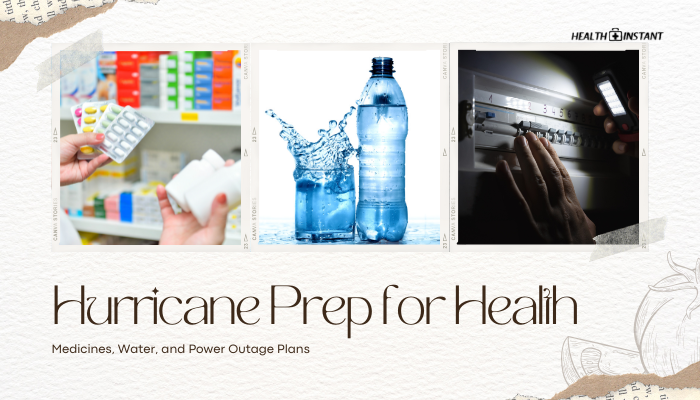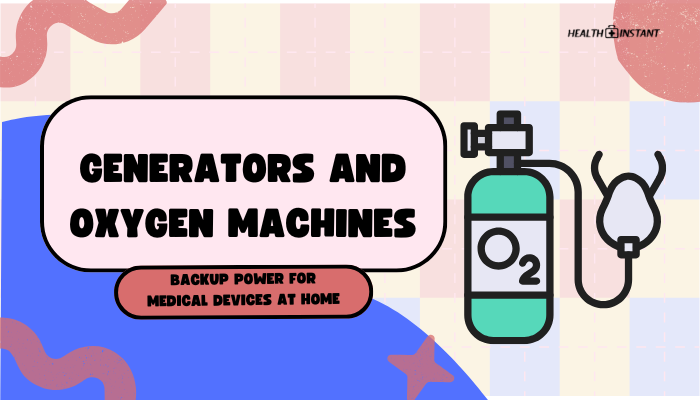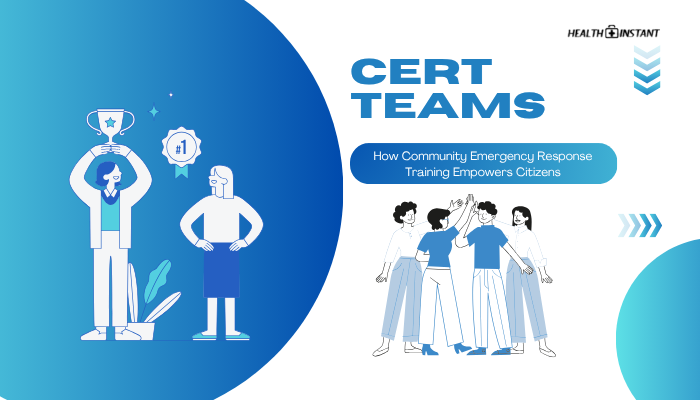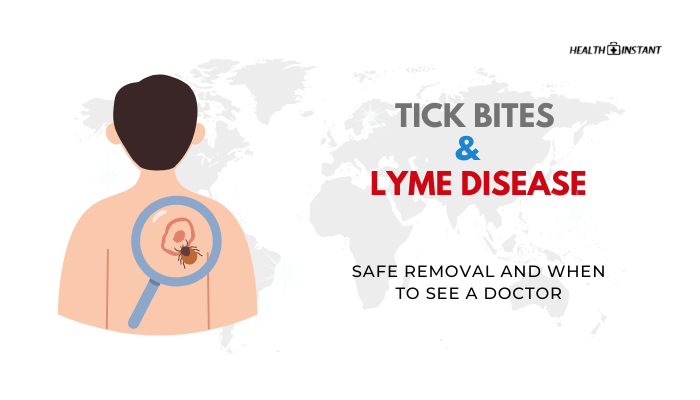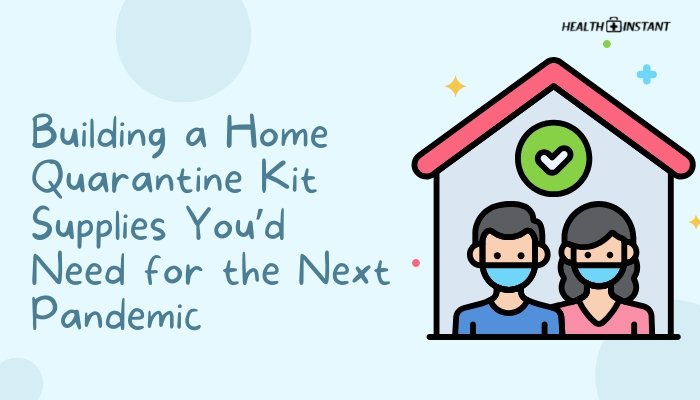Introduction
Hurricanes can strike with powerful winds, torrential rains, and flooding, disrupting daily life and public services. While physical property damage is often in the spotlight, maintaining health and well-being during these storms is equally critical. Adequate preparation ensures you have the necessary medications, clean water, and a plan to handle power outages that can last days—sometimes weeks. This guide outlines key steps to safeguard your health before, during, and after a hurricane so you can weather the storm with confidence.
Why Health-Focused Hurricane Prep Matters
When disaster hits, hospitals and pharmacies may be closed or overwhelmed, leaving you or loved ones without essential resources. Hurricanes often trigger:
- Interruptions in Medical Care: Dialysis centers, doctor’s offices, and home-care services may shut down.
- Gaps in Medication Access: Shortages or pharmacy closures can delay medication refills.
- Water Contamination: Flooding can compromise drinking supplies.
- Extended Power Outages: Refrigeration for certain medicines becomes a challenge, and electric medical devices may not function.
Early, targeted preparation addresses these issues. By planning specifically for medication access, water safety, and power loss, households can remain safer and more comfortable throughout the event.
Gathering Essential Supplies
Medications and Prescriptions
- Keep an Updated List
- Note all prescription medicines and dosages for every household member.
- Include over-the-counter essentials like pain relievers, allergy meds, and fever reducers.
- Note all prescription medicines and dosages for every household member.
- Refill Early
- If a storm is forecast, refill prescriptions promptly. Aim for at least a two-week supply.
- Some insurers lift refill limits in declared emergencies—check policies or local advisories.
- If a storm is forecast, refill prescriptions promptly. Aim for at least a two-week supply.
- Store Properly
- Keep medications in waterproof bags or containers.
- For items needing refrigeration, prepare cooler packs or a small cooler with ice if power is likely to fail.
- Keep medications in waterproof bags or containers.
Water and Food Supplies
- Water Storage
- Plan for at least one gallon of water per person (and pet) per day for three to seven days.
- If store-bought bottled water is unavailable, thoroughly clean and fill large containers from safe public water before the hurricane arrives.
- Plan for at least one gallon of water per person (and pet) per day for three to seven days.
- Non-Perishable Foods
- Stock up on canned goods, dried fruits, nuts, peanut butter, and energy bars.
- Remember manual can openers or easy-open cans if power is out.
- Stock up on canned goods, dried fruits, nuts, peanut butter, and energy bars.
- Special Dietary Needs
- Keep extra formula or baby food for infants.
- If a family member has diabetes or other conditions requiring specific diets, store suitable snacks and glucose-checking supplies.
- Keep extra formula or baby food for infants.
Power Outage Readiness
Medical Devices and Refrigerated Medications
- Identify Power-Dependent Equipment
- Oxygen concentrators, ventilators, CPAP machines, or home dialysis units.
- Check the manufacturer’s guidelines for battery backup or manual operation steps.
- Oxygen concentrators, ventilators, CPAP machines, or home dialysis units.
- Alternative Power Sources
- Portable generators, battery backups, or power banks can sustain key equipment.
- Ensure generators are installed outdoors or in well-ventilated areas to prevent carbon monoxide buildup.
- Portable generators, battery backups, or power banks can sustain key equipment.
- Refrigeration Solutions
- Insulated coolers with ice packs or specialized medication coolers help keep insulin or other temperature-sensitive drugs stable.
- Insulated coolers with ice packs or specialized medication coolers help keep insulin or other temperature-sensitive drugs stable.
Backup Lighting and Charging
- Flashlights and Headlamps: Opt for LED models and keep extra batteries.
- Solar Chargers or Portable Battery Packs: Keep phones and essential devices operational for communication.
- Avoid Candles: They pose a fire hazard—battery lanterns or flashlights are safer.
Preparing Your Home Safely
Shelter-in-Place Measures
- Shutter Windows: Protect glass from high winds, if possible, using storm shutters or plywood.
- Secure Outdoor Items: Bring in patio furniture or tie down objects that can become projectiles in strong winds.
- Cool Areas: If air conditioning fails, identify shaded rooms or cooler indoor spots to avoid overheating.
Safe Evacuation Routes and Kits
- Evacuation Planning
- Know local shelter locations or have contacts in less risk-prone areas if mandatory evacuations occur.
- Map out main and alternate routes ahead of time.
- Know local shelter locations or have contacts in less risk-prone areas if mandatory evacuations occur.
- Go-Bags
- Include copies of prescriptions, necessary medications, ID documents, flashlights, and hygiene items.
- A small cooler or refrigeration method for essential meds if you must leave quickly.
- Include copies of prescriptions, necessary medications, ID documents, flashlights, and hygiene items.
Mental Health and Community Support
Hurricane season brings anxiety and stress, especially when long power outages or property damage compounds worries. Tips for mental well-being include:
- Stay Connected: Reach out to friends, family, or community groups for emotional support.
- Structured Routines: Keeping meal or bedtime schedules helps maintain a sense of normalcy.
- Volunteer or Engage: Working with neighbors or local shelters fosters a sense of control and collective resilience.
Staying Informed: Alerts and Communication
Monitor reliable sources:
- Local Government Websites: Real-time updates on storm paths, shelters, and water quality advisories.
- Smartphone Apps: Weather service apps or FEMA app for emergency alerts.
- Radio and TV: Battery-powered or hand-crank radios help when power/internet fail.
- Community Networks: Social media groups, neighborhood watch, or local NGOs share tips, resources, and immediate help.
Post-Hurricane Concerns
Even after a hurricane passes:
- Check for Water Contamination: Boil water advisories often follow floods or broken water lines.
- Avoid Floodwaters: They can contain sewage, chemicals, or hidden debris.
- Document Damages: Take photos or videos of property damage for insurance claims.
- Watch for Mold Growth: Clean and disinfect damp areas quickly to prevent respiratory issues.
Conclusion
Health-focused hurricane preparedness means going beyond stocking a few canned goods. Carefully planning for medication supplies, ensuring safe water storage, and organizing a backup power strategy can protect you and your family through storms that disrupt everyday life. Stay aware of local advisories, maintain strong social connections, and keep an emergency kit updated. By taking these practical steps, you can weather the storm more comfortably and minimize health hazards long after the hurricane has passed.
References
- Federal Emergency Management Agency (FEMA). (2022). Hurricane preparedness guidelines.
- Centers for Disease Control and Prevention (CDC). (2021). Preparing for a hurricane or tropical storm.
- American Red Cross. (2020). Disaster preparedness for storms.
- U.S. Food & Drug Administration (FDA). (2019). Storing medicine and medical devices during power outages.
- National Hurricane Center (NOAA). (2022). Hurricane awareness and resources.
Disclaimer: This article provides general guidance and does not replace professional medical or legal advice. Always follow local emergency directives and consult healthcare professionals regarding personalized medical needs.

